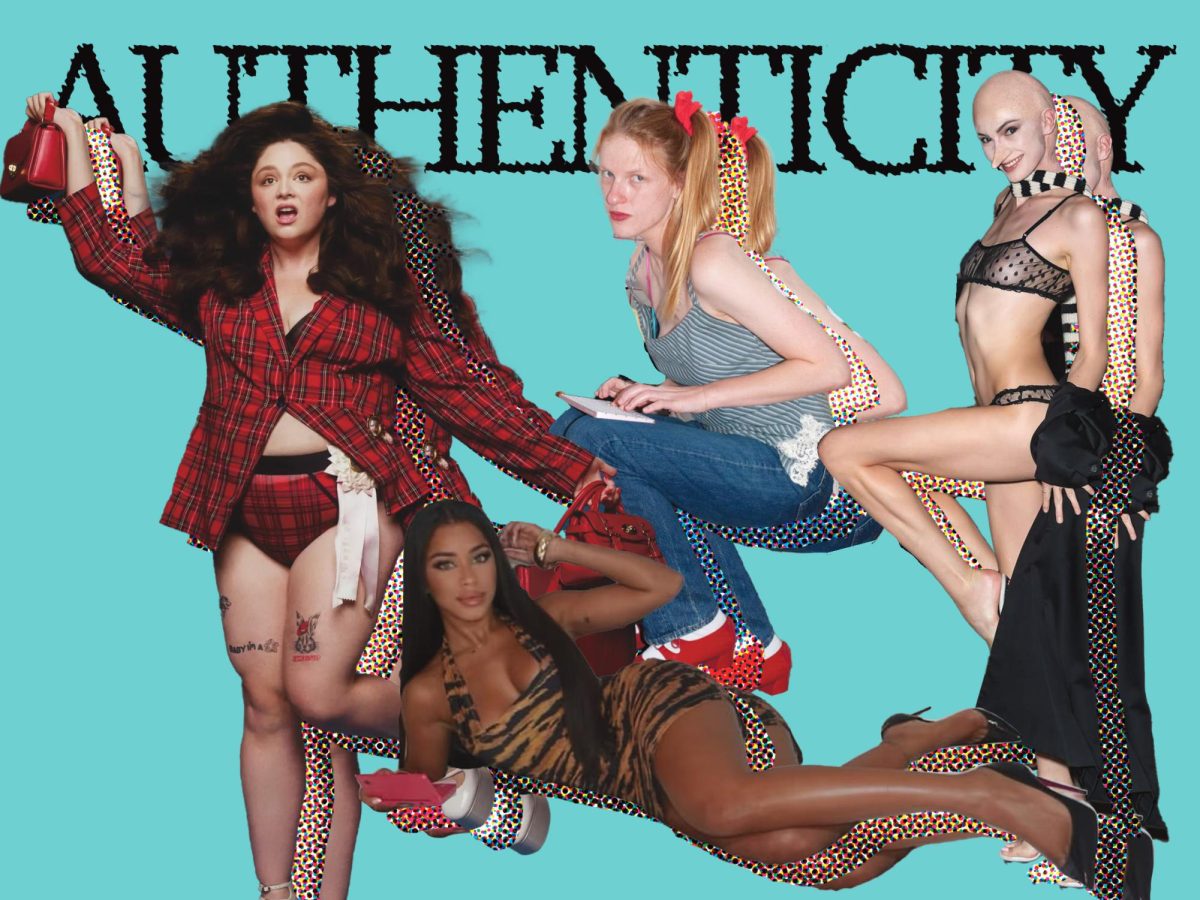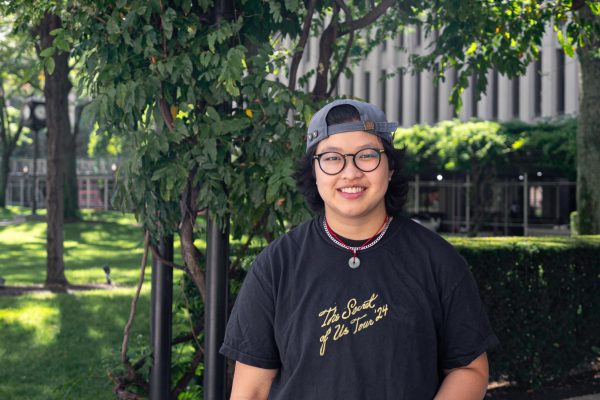As the days get longer, so does the list of trends that define them. In 2024, you couldn’t miss the “Brat” green smeared nationwide, enriching presidential campaigns and popularizing “messy girl” fashion. While this summer was hard to pin to just one sweeping trend, its many current affairs pointed towards one overarching theme — authenticity.
The epidemic of nonchalance has been in full swing over the past year — a trend built on appearing careless and detached to come across as cool. However, users online, myself included, have started to crave expression and self-possession. We’re stepping away from the reservedness of nonchalance and stepping into a new world shaped by honesty and vulnerability.
From the start of season seven of Love Island USA, fans criticized the islanders for seemingly playing the game to win the cash prize instead of finding true love like in past seasons. This assumption stood true until day five, when Amaya “Papaya” Espinal entered the villa as her most genuine self. Her tears were frequent and her iconic phrases were endless, with watchers quickly labeling her as the “people’s princess” for her unwavering authenticity.
We’re stepping away from the reservedness of nonchalance and stepping into a new world shaped by honesty and vulnerability.
It is uncommon for a bombshell — a contestant who joins the show after the first episode — to win Love Island. However, America united to ensure that Espinal, the “sensitive gangster,” took home the $100,000 prize for her vulnerability on and off the screen. People empathized with her rough start, as many guys in the villa found her to be “too much.” She did not let this compromise the bold and genuine character she brought to the island. Fans admire her heart as much as her honesty.
Espinal left a profound impact on fans, encouraging them to stop molding themselves into an archetype that appears perfect but is impractical in reality. This impact was evident in the countless fan edits, which garnered millions of likes and thousands of comments, emphasizing her remarkable ability to stay true despite being torn down.
Women risk being branded as “dramatic” the second they show an inch of depth.
But when there’s honesty, there’s judgment. For the many people who praised Espinal for her vulnerability, there were just as many who found her tears and phrases annoying or attention-seeking. Unfortunately, this criticism is also equally common outside the villa. Women risk being branded as “dramatic” the second they show an inch of depth. In the midst of nonchalance, it was refreshing for viewers to see someone like Espinal being subject to these criticisms from men in the villa, or haters after she left, while still refusing to change who she is.
Stepping away from television and into the music industry, another bombshell climbed the charts this summer: Audrey Hobert. She dropped her first-ever single on May 9 and, by the season’s end, had released an album. She’s now drawing over two million monthly listeners on Spotify, thanks to her brutally honest and catchy lyricism. If her name sounds familiar, you might know her as Gracie Abrams’ best friend who helped write hit songs like “Risk” and “That’s So True.”
Hobert’s music is the antithesis of nonchalance, defined by caring too much about everything. Fans resonated with her natural ability to make even the smallest moments in life seem monumental. Her lyrics capture the realities no one wants to brag about, like the embarrassment of taking “thirst traps” or the Uber back from a failed night out. Her authenticity comes from her ease in leaving nothing for the imagination, refusing to be embarrassed because, as her amassed fan base shows, she’s not the only one who feels this way. Her music persona is not just a gimmick; her lyrics mirror her real-life composure in concerts, slightly awkward but boldly raw.
Hobert pairs songs like “Sue Me” with her carefree dancing as if none of her fans were watching. On TikTok, these listeners embody her stiff movements of improvised choreography, united in their blitheness. Hobert knows we’ve all shown up to a function out of fear of missing out, only to realize you miss your bed, so she puts it into words for us. Her fearlessness to be perceived as “chalant” motivates listeners to do the same, knowing we are not the only ones.
While Hobert captivated listeners with her candid storytelling, Alex Consani and Meg Stalter have done the same in their respective spheres of influence: modeling and Hollywood. Consani established her social media presence in 2020 with her unapologetic and quirky personality, which soon gained mainstream recognition as she started modeling for big agencies post-pandemic.
Of course, not everyone is convinced by this new rush of sincerity. For every fan clapping, there’s a critic rolling their eyes.
Consani frequently films skits backstage at fashion shows and other A-list events, breaking the common notion that models lack personality. Upon first glance of her on a runway, you’d never expect her TikToks of public self-sabotage. Whether she’s yelling on the subway or singing on the street, she’s always drawing attention to herself, good or bad. Her videos radiate a disregard for the cool, calm composure typically associated with the modeling world.
Comparably, this summer, Stalter has been everywhere, across talk shows and red carpets, using her dry and awkward humor to charm audiences. The title of her new show, “Too Much,” captures her essence perfectly. She dressed as a “coffee cup” for this year’s MTV Video Music Awards, and wore a shirt with her own face while appearing as a guest on “The Late Show with Stephen Colbert.” She began as a comedian and built her platform on exaggerated yet relatable awkwardness, all while racking up hilariously cringe-worthy clips in the press. Although exaggerated at times, her ability to be her truest self — no matter the audience — has deeply resonated with fans.
Of course, not everyone is convinced by this new rush of sincerity. For every fan clapping, there’s a critic rolling their eyes. Some find Hobert’s music to be “painfully annoying,” or say her songs are “not as authentic as people think.” Others call Consani’s off-putting aura “performative.” Yet, criticism is a price to pay when staying true to oneself.
Caring is back. It’s no accident that audiences are rallying behind the honest and real. This wave of influence shows how much people are craving authenticity, while growing increasingly apathetic to nonchalance. The signs are everywhere — the lyrics you gravitate towards, a clip of Consani or Stalter flaunting their personal brands, or voting for Amaya Papaya on Love Island USA. There is a cultural craving for the unpolished in a world of strictly curated feeds. We are flocking to the chaos and messiness that remind us of ourselves and our realities: unplanned, over the top and imperfect.


